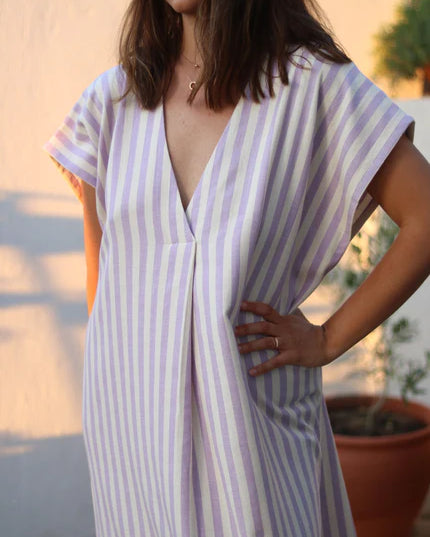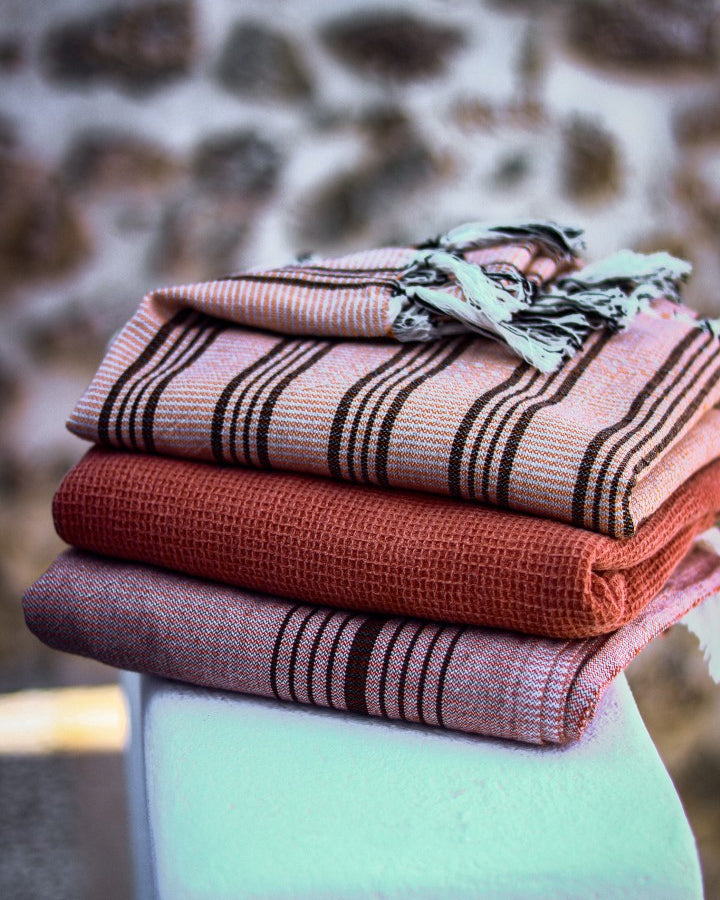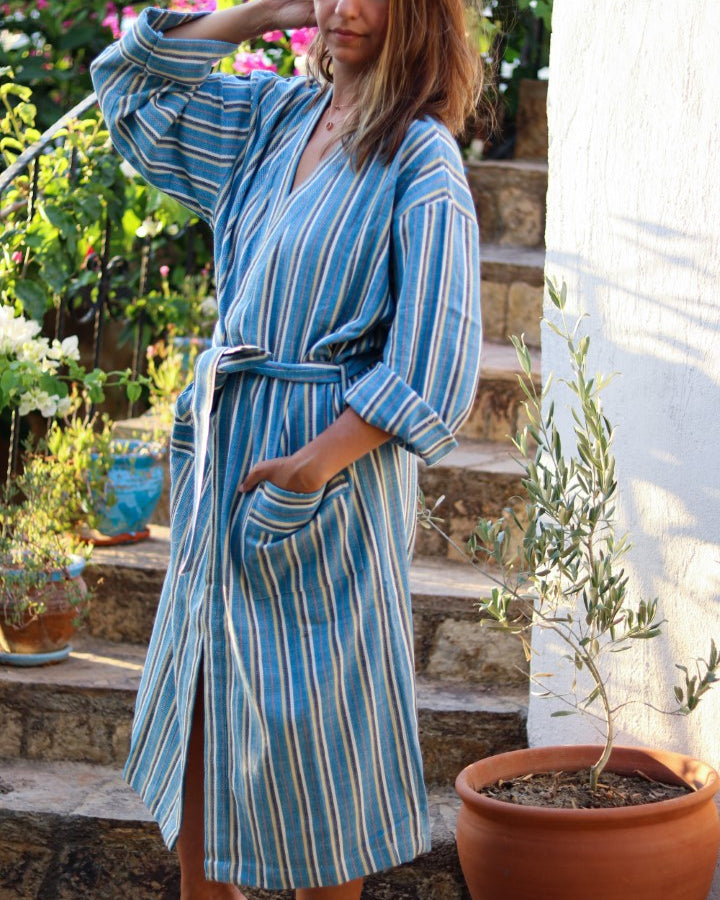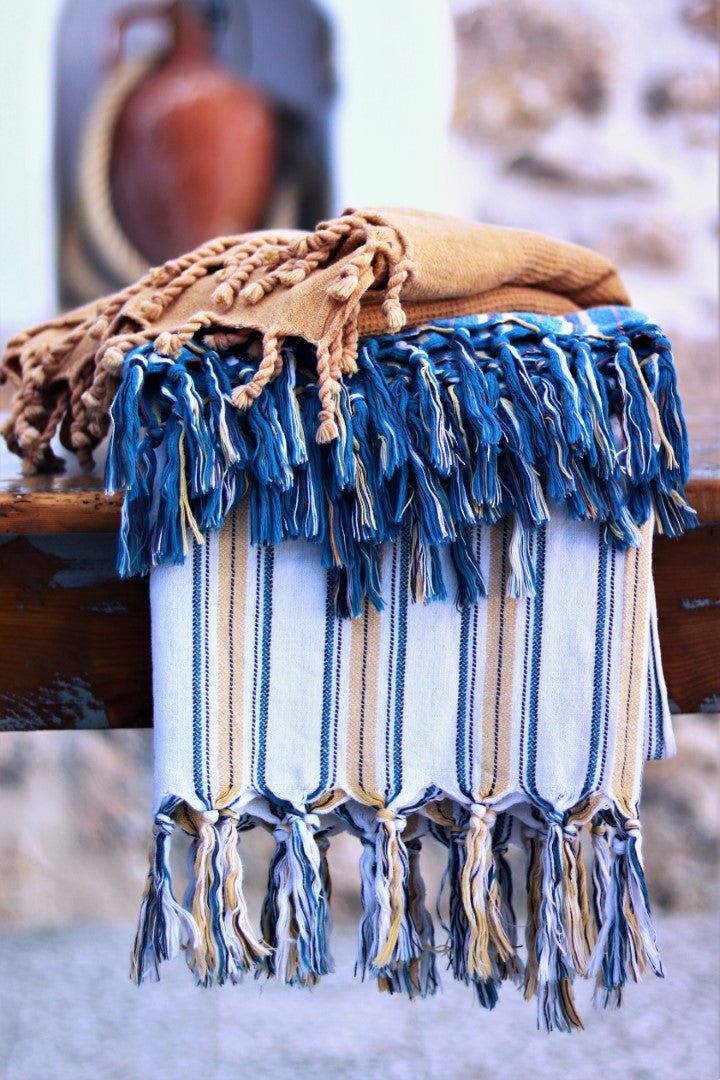Our mission is to introduce you to the beautiful traditional textile products of Turkey. Turkey the country that is:)
It has always been fun telling children about what we do and where Derya is from, and seeing their reaction being confused giggles and a fun gobble gobbles:)
Well, in the languages we speak at home we call the bird "turkey", "hindi" (which translates to Indian) in Turkish and "galopoula" (which translates to French) in Greek. The poor bird's name is a geographic mess and that led us to a fun linguistic investigation.
A Thanksgiving story of linguistics, trade, and geography

Turkey the bird is native to North America. The English term for our Thanksgiving star likely comes from Turkey the country. Or, more precisely, from Turkish merchants in the 15th and 16th centuries.
How exactly the word turkey made its way into the English language is in dispute. The linguist Mario Pei theorized that more than five centuries ago, Turks from the commercial hub of Constantinople sold wild fowl from Guinea in West Africa to European markets, leading the English to refer to the bird as “turkey cock” and eventually “turkey” for short.
When British settlers arrived in Massachusetts, they applied the same terms to the wild fowl they spotted in the New World, even though the birds were a different species than their African counterparts.
Turkey, which has no native turkeys, does not call turkey turkey. The Turks “knew the bird wasn’t theirs,” Forsyth explains, so they “made a completely different mistake and called it a hindi, because they thought the bird was probably Indian.”
They weren’t alone. The French originally called the American bird poulet d’Inde (literally “chicken from India”), which has since been abbreviated to dinde, and similar terms exist in languages ranging from Polish to Hebrew to Catalan. Then there’s the oddly specific Dutch word kalkoen, which, as a contraction of Calicut-hoen, literally means “hen from Calicut,” a major Indian commercial center at the time. These names might have arisen from the mistaken belief at the time that the New World was the Indies, or the sense that the turkey trade passed through India.
As for why they call turkeys "galopoula" in Greek, it is derived from the Latin word for rooster, gallus.
Here are some names for the Turkey from around the world
Names Referring to India or the West Indies as they used to be mistakenly known
-
Turkish: Hindi (from/related to India)
-
French: Poulet d’inde (chicken from India)
-
Catalan: Gall dindi (Indian chicken)
-
Hebrew: Tarnegol hodu (Indian chicken)
-
Russian: Indiuk
-
Polish: Indyk
-
Yiddish: Indik
-
Maltese: Dundjan
-
Dutch: Kalkoen (from the Indian city of Calicut)
-
Bahasa Indonesia: Ayam kalkun (bird + reference to Calicut)
-
Danish: Kalkun (see Dutch)
-
Swedish: Kalkon (see Dutch)
-
Low German: Kalkuun (see Dutch)
-
Finnish: Kalakuna (see Dutch)
Names Referring to France
-
Scottish Gaelic: Cearc frangach (French chicken)
Other Countries
-
(Standard) Arabic: Dik roumi (Roman rooster) [According to some sources, it’s diiq hindi, or Indian rooster]
-
Palestinian Arabic: Diik Habash (Ethiopian rooster)
-
Egyptian Arabic: “Greek bird” or “Greek rooster” [According to some sources, it’s dik-rumi, or Turkish fowl, though that looks suspiciously like the “roumi” that supposedly means Roman]
-
Malay: Ayam belanda (Dutch chicken)
-
Portuguese: Peru (refers to the country)
Best name according to us: The Seven-faced bird
In Japanese, the turkey is called shichimenchō, which literally means "seven-faced bird". In Korean, the turkey is called chilmyeonjo, which also translates as "seven-faced bird". This is said to reflect the ability of the bird, particularly the male, to change the form of its face depending on its mood.


















Comments
Anatolico keeps us dry, warm, stylish and educates us as well. You are simply great!
Thanks loved this story. Stay healthy See you next year I hope❤️